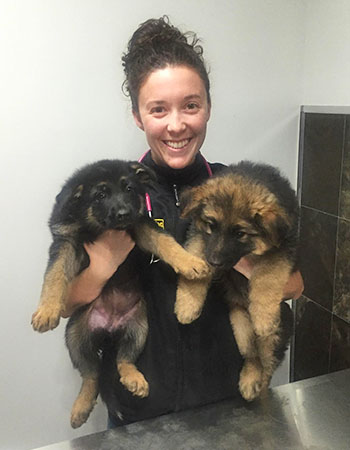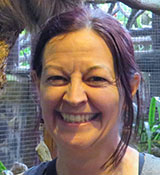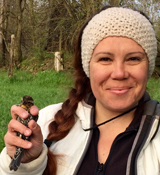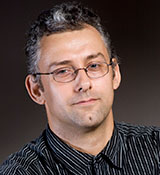What is INTEGRATIVE Biology?
Biology is a natural science that focuses on the study of life from many different perspectives including the structure, function, growth, evolution, distribution, identification and naming of organisms. It is also used in the health and environmental sciences.
Integrative Biology at Augustana
Our Integrative Biology program is designed to help you understand the scientific process and learn transferable skills through the practice of scientific inquiry. The program focusses on:- Evolution
- Development
- Function
Program Information
Integrative Biology at Augustana is available as a:
- Major in the Bachelor of Science degree program
- Subject Specialization in the Bachelor of Science/Bachelor of Education (Secondary) Combined General Sciences Major
- Minor in the Bachelor of Science/Bachelor of Education (Secondary) Combined degree program
Academic Innovations
All programs at Augustana include a wide-ranging liberal arts and sciences core, taught within our unique “3-11” calendar
Careers
An undergraduate degree in Integrative Biology from Augustana will help you find careers as diverse as the study of life! Such as:
- Pharmacist
- Forensic Laboratory Analyst
- Healthcare Professional
- Zoologist
- Ecologist
- Microbiologist
- and many more!
Integrative Biology AlumnA

Veterinarian
Nicole describes her four years of vet college as “very tough.” However, while many of her classmates struggled with their courses, Nicole was one of the top five students in her biochemistry class—thanks, she says, to the foundation she received at Augustana.
Course Highlights
Mendelian inheritance and its cytological features including the molecular and cellular basis for the transmission of hereditary characteristics. Topics that are emphasized include microbial genetics, cytoplasmic inheritance, linkage and genetic mapping, DNA as genetic material, gene action, and the genetic code.
Study of the structure, function, and diversity of vertebrates.
Functional anatomy and life cycles of the major invertebrate taxa. Emphasis is on the comparative approach to understanding of phylogenetic relations between invertebrate taxa and their respective positions on the tree of life. Rich invertebrate biodiversity will be observed and placed into environmental context.
Field course that addresses problems of biodiversity and conservation in tropical environments. The student participates in field workshops, and designs and conducts their own field project to answer questions related to ecological and biological conservation. Prerequisite: AUBIO 350 or AUENV 350, and consent of the instructors based on successful completion of the selection process.
Examination of the pathogenic mechanisms used by selected bacteria, and protists that cause human diseases. Pathogens will be compared with a focus on the method of entry, colonization and invasion of host tissue used by various microbes and the microbial factors required to cause infection and disease. Epidemiological approaches, antimicrobials and antibiotic resistance will also be presented.

Sheryl Gares, PhD
Dr. Sheryl Gares teaches courses in the areas of microbiology, immunology and cell biology. Her research interests are in the area of pathogenesis.
Visit their website
Neil Haave, PhD
Dr. Neil Haave teaches courses in the areas of biochemistry, cell biology, histology, and history and philosophy of biology. Neil’s research interests are in the scholarship of teaching and learning (SoTL) with an emphasis on how active learning and metacognition are best implemented in our courses.
Visit their website
Anne McIntosh, PhD
Dr. Anne McIntosh teaches in the areas of plant biology, biological diversity, and ecology. Her research focuses on the recovery of forested and grassland ecosystems after disturbance.
Visit their website
Ivana Schoepf, PhD
Dr. Schoepf's areas of teaching include animal behaviour, evolutionary biology, vertebrate zoology and conservation. Her research focuses on disease ecology, behavioural endocrinology and conservation biology in mammals and birds.
Visit their website
Tomislav Terzin, PhD
Dr. Tomislav Terzin teaches in the areas of genetics, developmental biology, the evolution of development, and molecular and cell biology. His research interest is a study of mimicry, camouflage, ornaments related to sexual selection and colour patterns of tropical insects.
Visit their website